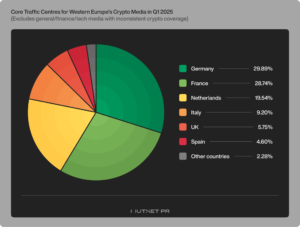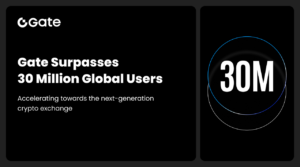DeFi Security Best Practices for Yield Farming and Staking

DeFi Security Best Practices for Yield Farming and Staking
In the rapidly evolving world of decentralized finance (DeFi), yield farming and staking have emerged as popular methods for users to earn passive income on their cryptocurrency holdings. However, as the DeFi ecosystem expands, so do the associated security risks. It is essential for participants in yield farming and staking activities to be aware of the potential vulnerabilities and adopt best practices to safeguard their investments. This article aims to provide insights into DeFi security and offer practical tips for secure yield farming and staking.
Introduction
DeFi, short for decentralized finance, refers to a set of financial applications built on blockchain networks that aim to provide open, permissionless, and inclusive financial services. These applications eliminate intermediaries, allowing users to engage in various financial activities, such as lending, borrowing, trading, and earning interest, without relying on traditional financial institutions.
Understanding DeFi
DeFi protocols leverage smart contracts, self-executing agreements coded on a blockchain, to automate and enforce financial transactions. By utilizing these protocols, users can interact with DeFi applications using their cryptocurrency holdings, earning returns in the form of interest, fees, or governance tokens.
The Rise of Yield Farming and Staking in DeFi Security

Yield farming and staking are two popular strategies in the DeFi space that allow users to earn rewards for providing liquidity or locking their assets in specific protocols. Yield farming involves lending or providing liquidity to DeFi platforms, typically in the form of cryptocurrency pairs, to earn additional tokens as incentives. On the other hand, staking requires users to lock their tokens in a particular protocol to support network operations and secure the blockchain. In return, users receive rewards in the form of additional tokens or fees.
Security Risks in DeFi
While the decentralized nature of DeFi offers many advantages, it also introduces unique security challenges. The open and permissionless nature of DeFi protocols makes them susceptible to various risks, including:
- Smart Contract Vulnerabilities: Smart contracts are susceptible to bugs and vulnerabilities, which can be exploited by malicious actors to gain unauthorized access or manipulate funds.
- Phishing Attacks: Phishing attacks target users by tricking them into sharing their private keys, seed phrases, or other sensitive information through fraudulent websites or emails.
- Centralized Points of Failure: Despite the decentralized nature of DeFi, certain aspects, such as user interfaces or oracles, can still have centralized components that become points of vulnerability.
- Impermanent Loss: When providing liquidity to decentralized exchanges, users are exposed to impermanent loss, which occurs when the value of the deposited assets diverges significantly from their initial ratio.
- Flash Loan Attacks: Flash loans exploit the ability to borrow and repay funds within a single transaction, enabling attackers to manipulate markets or exploit vulnerabilities in smart contracts.
Best Practices for Secure Yield Farming and Staking in DeFi Security
To mitigate the security risks associated with yield farming and staking, it is crucial to follow best practices:
- Choose Reliable Platforms: Select reputable DeFi platforms with a track record of security and reliability. Conduct thorough research, read user reviews, and analyze the platform’s security measures before committing your funds.
- Perform Due Diligence: Before participating in any yield farming or staking activities, ensure you understand the underlying protocols, their smart contract code, and the associated risks. Audit reports, code reviews, and security assessments can provide valuable insights into the platform’s security posture.
- Use Hardware Wallets: Utilize hardware wallets, such as Ledger or Trezor, to store your cryptocurrency holdings securely. Hardware wallets provide an additional layer of protection by keeping your private keys offline and away from potential online threats.
- Enable Two-Factor Authentication: Enable two-factor authentication (2FA) whenever possible. 2FA adds an extra layer of security by requiring users to provide a second verification step, typically through a mobile app, in addition to their password.
- Implement Strong Passwords: Create strong and unique passwords for all your DeFi accounts. Avoid using easily guessable information and consider using a password manager to securely store your login credentials.
- Beware of Phishing Attacks: Be vigilant about phishing attempts. Always verify the website’s URL, double-check email senders, and never share your private keys or seed phrases with anyone. Avoid clicking on suspicious links and rely on official sources for accessing DeFi platforms.
- Monitor Smart Contracts: Regularly monitor the smart contracts you interact with for any potential vulnerabilities or suspicious activities. Stay updated with the latest news and security alerts related to the DeFi protocols you use.
- Diversify Your Investments: Avoid putting all your eggs in one basket. Diversify your investments across multiple DeFi platforms and projects to minimize the impact of potential security breaches or smart contract failures.
The Importance of Keeping Software Updated in DeFi Security
Always keep your software, including wallets and DeFi interfaces, up to date. Developers frequently release updates to patch security vulnerabilities and improve the overall user experience. Staying up to date ensures you have the latest security enhancements and bug fixes.
Understanding Smart Contract Audits in DeFi Security
Smart contract audits play a vital role in ensuring the security and reliability of DeFi protocols. Audits are conducted by independent security firms or experts who thoroughly review the smart contract’s code for vulnerabilities and potential risks. By undergoing a comprehensive audit, DeFi projects can identify and fix any vulnerabilities before they are exploited. Users should look for projects that have undergone reputable third-party audits and make the audit reports publicly available.
The Role of Decentralized Governance in DeFi Security
Many DeFi platforms incorporate decentralized governance mechanisms, allowing token holders to participate in decision-making processes. While decentralized governance is a crucial aspect of the DeFi ecosystem, it can also introduce security risks. Malicious actors may attempt to manipulate the governance process through collusion or by acquiring a significant portion of the voting power. It is important for users to actively participate in governance and exercise due diligence when voting on proposals or delegating voting power to avoid potential security pitfalls.
Insurance and Risk Mitigation in DeFi Security
As the DeFi industry matures, the availability of decentralized insurance solutions is increasing. Insurance protocols aim to protect users’ funds by offering coverage against potential smart contract vulnerabilities, hacks, or other security incidents. Users should explore insurance options and consider obtaining coverage for their investments in DeFi protocols. However, it’s important to carefully review the terms, coverage limits, and claim procedures of insurance protocols to ensure they align with individual risk tolerance and requirements.
Staying Informed and Engaging with the Community
Remaining updated about the latest trends, developments, and security practices in the DeFi space is crucial for maintaining a secure and profitable yield farming and staking strategy. Engaging with the DeFi community through forums, social media, and dedicated platforms allows users to exchange knowledge, share experiences, and stay informed about potential security risks or best practices. Actively participating in the community can provide valuable insights and help users navigate the dynamic landscape of DeFi security.
Seeking Professional Advice
For individuals who are new to DeFi or feel unsure about navigating the complexities of yield farming and staking, seeking professional advice can be beneficial. Consulting with financial advisors, blockchain experts, or experienced community members can provide valuable guidance and help users make informed decisions about their investments. Professional advice can help users understand the risks involved, identify suitable platforms, and adopt secure practices to protect their funds.
Continuous Learning and Adaptation
The DeFi ecosystem is constantly evolving, and new security challenges may arise. Therefore, it is essential for users to embrace a mindset of continuous learning and adaptation. Staying updated with the latest security practices, following industry news and developments, and actively participating in educational programs or workshops can enhance one’s understanding of DeFi security and help users stay ahead of potential risks.
Conclusion
As the popularity of DeFi continues to grow, it is paramount for participants in yield farming and staking to prioritize security. By adhering to the best practices outlined in this article, users can enhance the protection of their funds and reduce the likelihood of falling victim to malicious actors or avoidable vulnerabilities. Safeguarding your assets in the DeFi ecosystem requires a proactive approach, regular security assessments, and staying informed about emerging threats and security measures.
FAQs
Q1: Is yield farming risk-free? A1: No, yield farming carries inherent risks. It is important to understand the associated risks and conduct thorough research before participating in any yield farming activities.
Q2: Can I use a software wallet for storing my funds during yield farming? A2: While software wallets can be convenient for everyday transactions, using a hardware wallet provides an added layer of security for storing your funds during yield farming.
Q3: Are there any minimum requirements for participating in yield farming or staking? A3: The specific requirements vary depending on the platform and protocol. Some platforms may have minimum deposit thresholds or specific token requirements. It’s important to review the platform’s guidelines before participating.
Q4: What should I do if I suspect a phishing attempt? A4: If you suspect a phishing attempt, immediately close the suspicious website or email and avoid providing any personal or sensitive information. Report the incident to the platform or service being impersonated.
Q5: How often should I review and update my security measures? A5: Regularly reviewing and updating your security measures is crucial. Stay informed about the latest security best practices, follow updates from the platforms you use, and adapt your security measures accordingly.

I have been in the industry for over 5 years. I know all the latest news and what is going on with different coins. I write about Bitcoin, Ethereum, Litecoin, and more.







